
Problems of Education in the 21st Century
Scope & Guideline
Innovating Solutions for Today's Educational Issues.
Introduction
Aims and Scopes
- Interdisciplinary Approaches in Education:
The journal emphasizes interdisciplinary research that integrates various fields such as psychology, sociology, and technology into educational practices, fostering a holistic understanding of learning environments. - Innovative Teaching and Learning Methodologies:
It explores innovative pedagogical strategies, including inquiry-based learning, digital learning environments, and problem-based learning, aiming to enhance student engagement and learning outcomes. - Inclusive Education Practices:
A core focus is on promoting inclusive education, addressing the needs of diverse learners, including those with disabilities, refugees, and varying socio-economic backgrounds. - Assessment and Evaluation in Education:
The journal discusses various assessment techniques and their impact on teaching effectiveness and student learning, including formative and summative assessments. - Educational Technology Integration:
It investigates the role of technology in enhancing educational practices, including the effectiveness of digital tools and platforms in both traditional and remote learning settings. - Professional Development for Educators:
The journal highlights the importance of continuous professional development for teachers and educational leaders to adapt to new challenges and improve educational practices.
Trending and Emerging
- Digital Transformation in Education:
There is a growing focus on the integration of digital tools and platforms in education, particularly in response to the COVID-19 pandemic, highlighting the importance of digital literacy and online learning effectiveness. - Social Justice and Equity in Education:
Research addressing social justice, equity, and inclusion in education has gained prominence, reflecting a broader societal emphasis on these issues and their impact on educational access and outcomes. - Mental Health and Well-Being in Education:
An increasing number of studies explore the mental health and well-being of students and educators, emphasizing the importance of supportive learning environments and emotional intelligence. - STEM and STEAM Education:
There is a notable trend towards research in STEM (Science, Technology, Engineering, and Mathematics) and STEAM (including Arts) education, focusing on innovative practices that promote critical thinking and creativity. - Crisis Management in Education:
Research examining educational responses to crises, such as natural disasters and pandemics, is emerging as a key theme, highlighting the need for resilience and adaptability in educational systems.
Declining or Waning
- Traditional Teaching Methods:
There is a noticeable decline in research focused on traditional, teacher-centered instructional methods as the field shifts towards more student-centered and innovative approaches. - General Educational Policy Discussions:
Papers discussing broad educational policies without specific contextual applications are becoming less frequent, suggesting a movement towards more targeted, research-based policy analysis. - Basic Literacy and Numeracy Skills:
Research focused solely on basic literacy and numeracy skills has waned, as the journal increasingly prioritizes higher-order thinking skills and competencies relevant to the 21st century. - Non-Digital Learning Environments:
As educational technology becomes more prominent, studies addressing non-digital, conventional learning environments have decreased, reflecting a shift towards understanding digital learning dynamics. - Historical Perspectives on Education:
Research that primarily examines historical educational practices without tying them to contemporary issues is declining, as the journal seeks to address current and future educational challenges.
Similar Journals

Journal of Baltic Science Education
Fostering Innovation in Educational PracticesThe Journal of Baltic Science Education, with ISSN 1648-3898, is a leading academic journal published by the SCI METHODICAL CENTRE - SCI EDUCOLOGICA in Lithuania. This esteemed journal, established in 2008, has gained recognition within the educational sector, boasting a notable impact factor that places it in the Q2 category for the year 2023, highlighting its significance in advancing educational research. With Scopus rankings reflecting a commendable placement at #659 out of 1543 in the Education category, the journal serves as a vital platform for disseminating knowledge and fostering discourse among researchers, professionals, and students in the field of science education across the Baltic region and beyond. The journal’s objectives include promoting innovative educational practices, sharing empirical research findings, and contributing to the development of effective science teaching methodologies, ensuring that it remains at the forefront of academic inquiry in education.
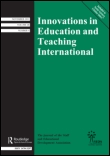
INNOVATIONS IN EDUCATION AND TEACHING INTERNATIONAL
Elevating teaching standards through impactful insights.INNOVATIONS IN EDUCATION AND TEACHING INTERNATIONAL, published by Routledge Journals, Taylor & Francis Ltd, is a premier, peer-reviewed journal dedicated to disseminating cutting-edge research and best practices in the field of education. With an impressive Q1 category ranking in Education, this journal is recognized for its influential contributions, boasting a Scopus Rank of #288 out of 1543 in Social Sciences – Education, placing it in the 81st percentile of its category. Established in 1996 and continuing to thrive through 2024, INNOVATIONS IN EDUCATION AND TEACHING INTERNATIONAL focuses on fostering scholarly discourse around emerging educational methodologies, pedagogical innovations, and the integration of technology in teaching. As an open-access journal, it ensures that groundbreaking research is accessible to a global audience, empowering educators, researchers, and policy-makers to enhance teaching and learning experiences. By publishing high-quality, empirical studies and theoretical contributions, this journal plays a vital role in shaping the future of education.
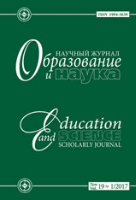
Obrazovanie i Nauka-Education and Science
Advancing Knowledge in Education and ScienceObrazovanie i Nauka - Education and Science is a distinguished open-access journal published by the Russian State Vocational Pedagogical University, dedicated to advancing knowledge in the fields of education, developmental and educational psychology, and physical therapy. With ISSN 1994-5639 and E-ISSN 2310-5828, the journal has established itself as a pivotal source of research and scholarly discourse in Russia since adopting an open-access model in 2012, allowing unrestricted access to its content for scholars and practitioners alike. The journal's significant impact is mirrored in its recent category quartiles, ranking in Q3 for both Education and Physical Therapy as of 2023, affirming its relevance to modern educational practices and rehabilitation sciences. Furthermore, its respectable Scopus ranking indicates a solid position within the competitive realms of social sciences and health professions. With a commitment to quality and accessibility, Obrazovanie i Nauka serves as an invaluable resource for researchers, educators, and students aiming to deepen their understanding and improve practices within these vital sectors.

Australian Journal of Teacher Education
Unlocking potential in teacher training and curriculum innovation.Welcome to the Australian Journal of Teacher Education, a leading scholarly publication dedicated to advancing the field of education through innovative research and impactful discourse. Published by Edith Cowan University, this journal serves as a vital platform for educators, researchers, and practitioners to share their findings and insights in the sphere of teacher education. With a commendable Q2 ranking in Education and recognition within the 45th percentile of Scopus's education category, the journal underscores its commitment to maintaining rigorous academic standards while embracing the burgeoning landscape of teacher training and curriculum innovation. Since its inception in 2008, the journal has provided an open access format to its readers, facilitating unrestricted dissemination of knowledge across Australia and beyond. Set against the backdrop of Australia's vibrant educational research community, the Australian Journal of Teacher Education is pivotal for those seeking to engage with current trends and methodologies in teaching and learning.

Revista Educaonline
Empowering Educators with Cutting-Edge InsightsRevista Educaonline is a premier academic journal published by the Federal University of Rio de Janeiro's School of Communication, dedicated to advancing the field of online education and digital communication technologies. With the ISSN 1983-2664, this journal serves as an essential resource for researchers, educators, and practitioners exploring innovative methodologies and pedagogical frameworks in the digital landscape. Although the journal currently does not offer Open Access, it maintains a rigorous selection process to ensure the publication of high-quality research pertinent to contemporary educational practices. The editorial board is committed to promoting interdisciplinary discourse that bridges technology and education, fostering advancements that respond to the evolving needs of learners worldwide. As scholars strive to navigate the complexities of digital learning, Revista Educaonline stands out as a vital platform for disseminating impactful research, ultimately enriching the academic community's understanding of online education dynamics.
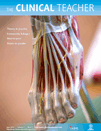
Clinical Teacher
Shaping the Future of Clinical TeachingThe Clinical Teacher is a leading journal published by WILEY, dedicated to fostering excellence in medical education and enhancing the skills of healthcare educators. With an ISSN of 1743-4971 and an E-ISSN of 1743-498X, this esteemed publication has gained recognition for its practical insights and innovative approaches, particularly in the realms of Teaching and Assessment within the medical field. Since its inception in 2006, it has maintained a notable impact within its categories, ranking Q3 in Medicine (miscellaneous) and an impressive Q1 in Review and Exam Preparation as of 2023. The journal's commitment to advancing educational practices is reflected in its exceptional Scopus ranking of #1 in the Nursing Review and Exam Preparation category, placing it in the 87th percentile of its peers. Although not open access, The Clinical Teacher serves as an invaluable resource for researchers, educators, and healthcare professionals focused on improving the learning experiences of future medical practitioners. With continued contributions from eminent figures in the field, this journal stands as a vital platform for the dissemination of knowledge and the evolution of teaching methodologies in clinical settings.
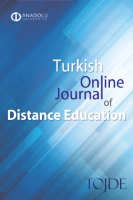
Turkish Online Journal of Distance Education
Advancing Innovations in Online Education.Turkish Online Journal of Distance Education, a distinguished publication from ANADOLU UNIVERSITY, serves as a vital resource in the field of distance education, contributing significantly to the ongoing discourse since its inception in 2000. With an impressive impact factor that reflects its standing within the academic community, this open access journal provides an influential platform for researchers, educators, and practitioners to disseminate innovative findings and educational strategies. Ranked in the Q2 category within the education sector according to the 2023 quartile rankings, and boasting a commendable position of #423 out of 1543 in Scopus' Social Sciences Education rankings, the journal places itself firmly within the 72nd percentile of its cohort. Spanning from 2004 to 2024, the journal's commitment to advancing scholarship in distance education is reflected not only in its comprehensive articles but also in its responsive engagement with contemporary educational challenges. Positioned in Eskişehir, Turkey, this journal aims to elevate discussions surrounding online learning and contributes to the global dialogue on education accessibility and innovation.

Medical Science Educator
Fostering dialogue at the intersection of medicine and education.Medical Science Educator, published by SpringerNature, is an esteemed journal committed to advancing the intersection of educational methodologies and medical science. With a significant impact in its field, this journal holds a Q2 ranking in both Education and Medicine (miscellaneous) categories as of 2023, reflecting its dedication to high-quality research and scholarly dialogue. Operating in a digital format, the journal uniquely facilitates access to pivotal studies from its inception in 2011 until 2024, fostering innovation in medical education. The latest rankings highlight its credibility, placing it at the 63rd percentile in Social Sciences - Education and the 56th percentile in Medicine - Medicine (miscellaneous) within Scopus. This platform serves as an invaluable resource for educators, researchers, and practitioners aiming to enhance teaching practices and shape the future of medical education.

ETR&D-EDUCATIONAL TECHNOLOGY RESEARCH AND DEVELOPMENT
Unleashing Potential: Where Technology Meets EducationETR&D - Educational Technology Research and Development, published by Springer, is a premier journal dedicated to advancing the field of educational technology through rigorous research and development. With a history dating back to 1957, it has established itself as a leading resource for scholars and practitioners, maintaining a remarkable Q1 ranking in Education as of 2023, and standing at an impressive 41st out of 1543 in the Scopus rankings for Social Sciences - Education, placing it in the 97th percentile. This journal aims to bridge the gap between theory and practice, offering in-depth insights into the latest innovations and methodologies in educational technology. As a vital resource for researchers, educators, and technology developers, ETR&D highlights the interplay of technology, pedagogy, and learning environments, driving the evolution of educational practices in a digital era. Although not an open access journal, it provides comprehensive access options for institutional and individual subscribers, ensuring that key findings reach a broad audience. Discover the future of education through ETR&D's influential publications.
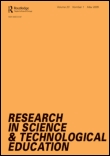
Research in Science & Technological Education
Pioneering Research for a New Era in STEM EducationResearch in Science & Technological Education, published by Routledge Journals, Taylor & Francis Ltd, is a leading international journal dedicated to advancing the field of education within the realms of science and technology. With its ISSN 0263-5143 and E-ISSN 1470-1138, this prestigious journal provides a platform for innovative and rigorous research from 1983 to the present, thus offering critical insights into pedagogical practices, curriculum development, and policy-making. Boasting a remarkable impact, it ranks in the top quartile (Q1) in both Education and Multidisciplinary categories as of 2023, with an impressive Scopus ranking of #270 out of 1543 in Social Sciences _ Education, placing it in the 82nd percentile. Researchers, educators, and students will find invaluable resources and discussions that shape the future of science and technological education in an increasingly complex world. Although this journal does not offer Open Access, it maintains a strong commitment to disseminating high-quality research, making it an essential read for those invested in the evolution of educational practices and outcomes in the STEM fields.